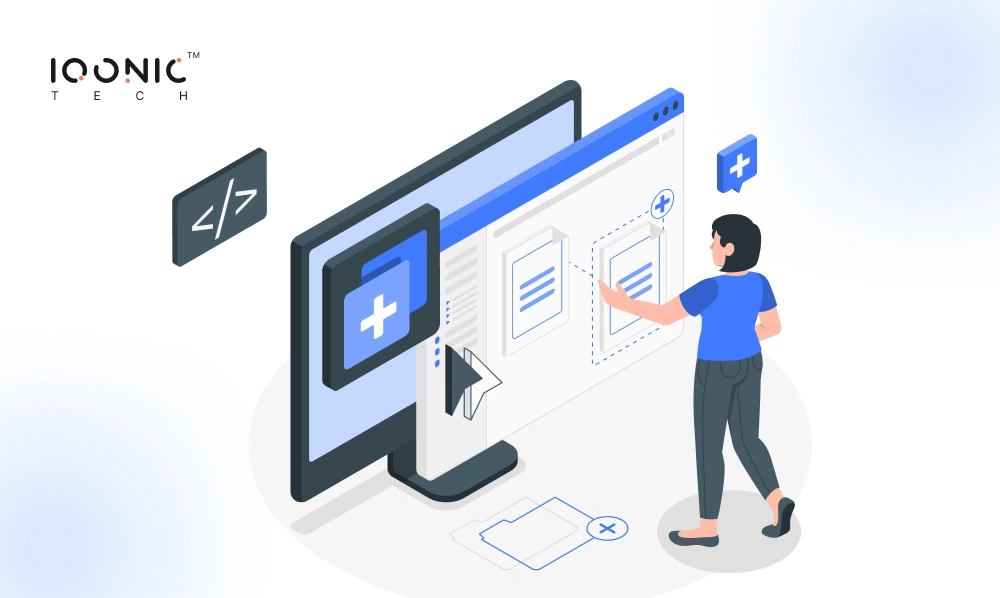In today’s fast-paced digital world, selecting the right software development partner is one of the most critical decisions a business can make. Whether creating custom software solutions to meet unique needs or scaling existing operations, a reliable partner can grow a company. They bring expertise, innovation, and efficiency, helping businesses achieve their goals faster and with fewer challenges.
However, choosing the wrong partner can have significant consequences. Delayed projects, budget overruns, and subpar deliverables can lead to wasted resources and missed opportunities. Poor communication or a lack of technical expertise can further compound these issues, leaving businesses stuck with half-baked solutions.
Why the Right Partner Matters:
1. Drives Innovation:
The right partner provides creative, cutting-edge solutions tailored to business needs.
2. Streamlines Processes:
A skilled partner simplifies workflows, enhancing overall efficiency.
3. Ensures Scalability:
With expertise in designing flexible solutions, they prepare businesses for growth.
Ultimately, selecting a dependable software development partner isn’t just about completing a project; it’s about building a long-term collaboration that drives success.
Understanding Your Project Needs
A clear grasp of your project requirements is crucial before selecting a software development partner. Finding the right match without well-defined goals becomes challenging and may lead to misaligned expectations.
Start by answering these key questions:
- What is the project scope? Define what the software should accomplish.
- What is the timeline? Set realistic deadlines for each phase.
- What is the budget? Establish financial boundaries to guide discussions.
- What technical features are required? Identify must-have functionalities or integrations.
Aligning your needs with the expertise of potential partners ensures a smoother collaboration. Engaging a custom software development vendor enhances project delivery efficiency.
A company specialising in custom software solutions is better equipped to meet unique business requirements. Clarity on these aspects will allow you to communicate effectively and choose a partner capable of delivering value as you evaluate software development companies.
Traits of a Reliable Software Development Partner
Choosing a dependable software development company requires understanding the key traits that define a successful partnership. The following qualities can help businesses identify a partner who will deliver on their promises:
A. Technical Expertise:
A good partner should have deep knowledge of programming languages, frameworks, and tools. For instance, a company proficient in modern technologies like AI or cloud computing is better equipped to create scalable solutions.
B. Communication Skills:
Clear and consistent communication is crucial. Reliable partners provide regular updates, address concerns promptly, and maintain transparency throughout the project. This transparency is essential in outsourcing software development for global teams.
C. Established Experience:
Seek a partner with a proven history of delivering successful projects within your industry. For example, a partner experienced in IT outsourcing will already understand the challenges and expectations of such collaborations.
D. Transparency and Flexibility:
Whether pricing, timelines, or scope changes, a trustworthy partner operates openly and adapts to evolving needs.
Red Flags to Watch For:
- Lack of documented case studies or testimonials
- Poor responsiveness or unclear communication
- Hesitation to discuss costs or timelines upfront
When evaluating development agencies, prioritise these traits to avoid risks and build a foundation for long-term success.
How to Shortlist and Evaluate Potential Partners
Finding the right software development partner involves careful research and evaluation to ensure they align with your goals. Here are practical steps to help you make the best choice:
1. Research Portfolios and Reviews:
Explore the company’s portfolio to learn about its past work. Read client reviews to gain insights into its performance, reliability, and communication style.
2. Request Case Studies:
Case studies highlight a company’s problem-solving approach and showcase its expertise in custom software solutions. Evaluate projects similar to yours to gain insight into their expertise.
3. Assess Industry-Specific Expertise:
Does the company have experience in your industry? Familiarity with your field can ensure they understand your challenges and deliver effective solutions.
4. Conduct Interviews or Consultations:
Schedule discussions to ask critical questions to ask your software development partner, such as Inquire about their expertise in custom enterprise application development services for scalable solutions.
- How do you handle changes in project scope?
- What tools do you use for collaboration and updates?
- Can you share examples of similar projects?
These steps will help you confidently evaluate software development companies, ensuring a partner who aligns with your goals and mitigates potential risks. Investing time in this process sets the stage for a successful collaboration.
The Role of Communication and Collaboration
Effective communication is the cornerstone of any successful partnership with a software development partner. Clear and consistent communication minimises misunderstandings, keeps projects on track, and ensures both parties stay aligned on goals and expectations.
Best practices for collaboration include:
a. Using Collaboration Tools:
Platforms like Slack, Trello, or Jira facilitate real-time communication, task tracking, and project management.
b. Establishing Regular Check-Ins:
Weekly or bi-weekly meetings help address issues early and provide updates on progress.
c. Ensuring Cultural Compatibility:
Partners with shared work ethics and values are more likely to foster smooth collaboration.
Communication becomes even more critical in IT outsourcing due to potential geographical and time zone differences. The benefits of outsourcing software development include access to global talent and faster delivery times. Structured communication ensures a seamless exchange of ideas and eliminates delays.
Businesses can build trust, maintain transparency, and achieve better outcomes by prioritising communication with a software development partner. Strong collaboration practices are essential for managing current projects and establishing a long-term, reliable relationship.
Cost vs. Value: Making the Right Decision
When choosing the right development agency, it is crucial to weigh cost against value. While the cheapest option might save money upfront, it can lead to poor quality, missed deadlines, or additional expenses later. On the other hand, a higher price may reflect specialised expertise, better tools, and a focus on delivering long-term benefits.
Key considerations for balancing cost and value:
i. Quality vs. Price:
Assess whether the company’s services justify their pricing. Higher costs often translate into better outcomes and fewer revisions. Investing in bespoke business software results in solutions that align perfectly with organizational goals.
2. Expertise and Innovation:
Agencies with strong portfolios and unique solutions offer the benefits of outsourcing software development, such as faster delivery and innovative features.
3. Long-Term Gains:
A slightly larger investment now can yield scalable and robust solutions, reducing maintenance expenses in the future.
Understanding value over cost in IT outsourcing ensures better alignment with business goals. Focusing on quality rather than cost alone can transform the development process into a worthwhile, growth-driven investment.
Conclusion: Partnering for Success
Choosing the right software development partner is a critical decision that impacts the success of your project and your business’s growth. A reliable partner will provide custom software solutions that align with your goals, deliver value, and foster long-term innovation.
Key takeaways:
- Conduct thorough research and due diligence. Evaluate providers for their expertise in custom technology solutions that drive innovation.
- Focus on communication, expertise, and transparency.
- Invest in a partner who prioritises quality and understands your vision.
By evaluating options carefully, you ensure a partnership that drives meaningful results and supports your business’s journey to success.



